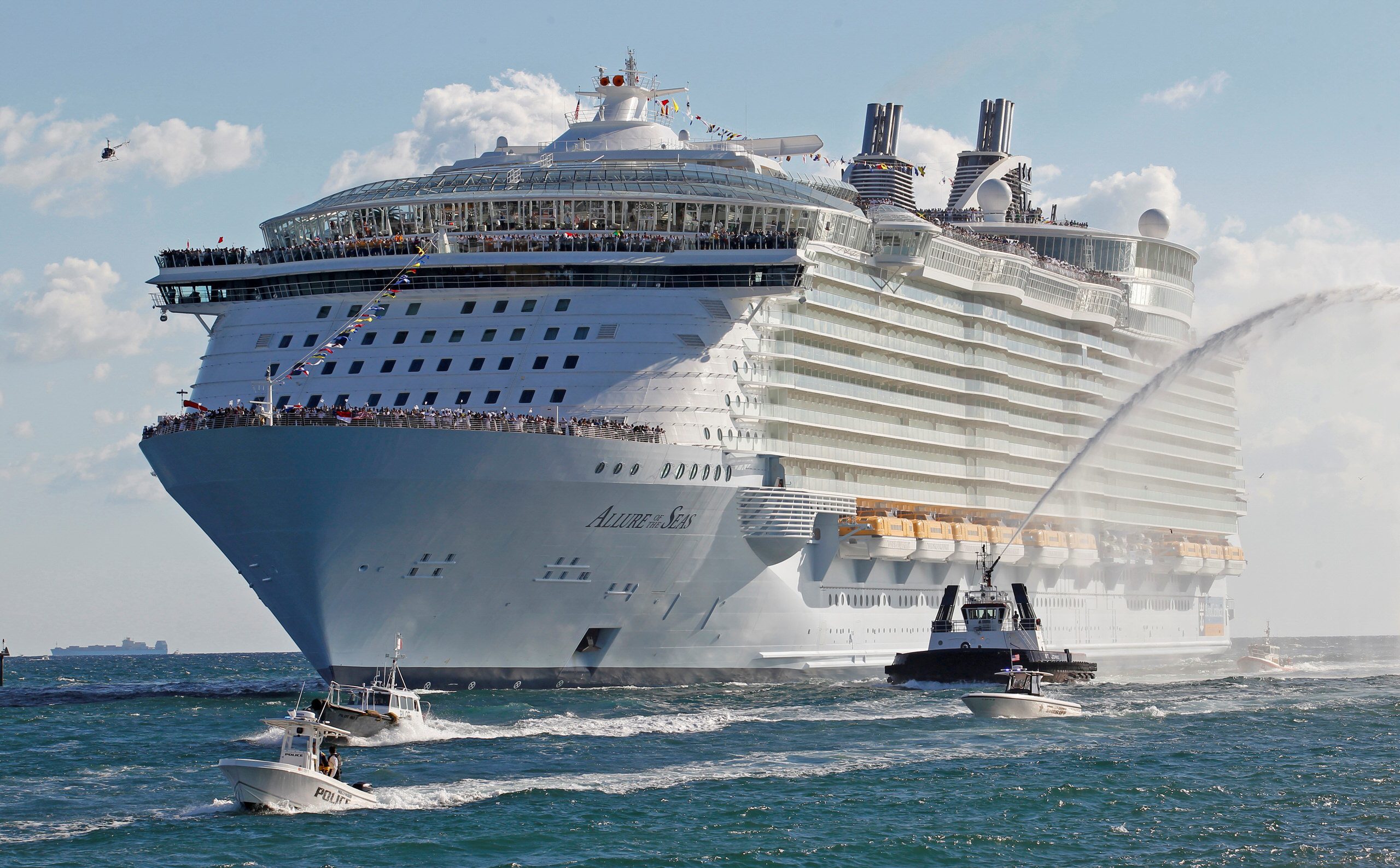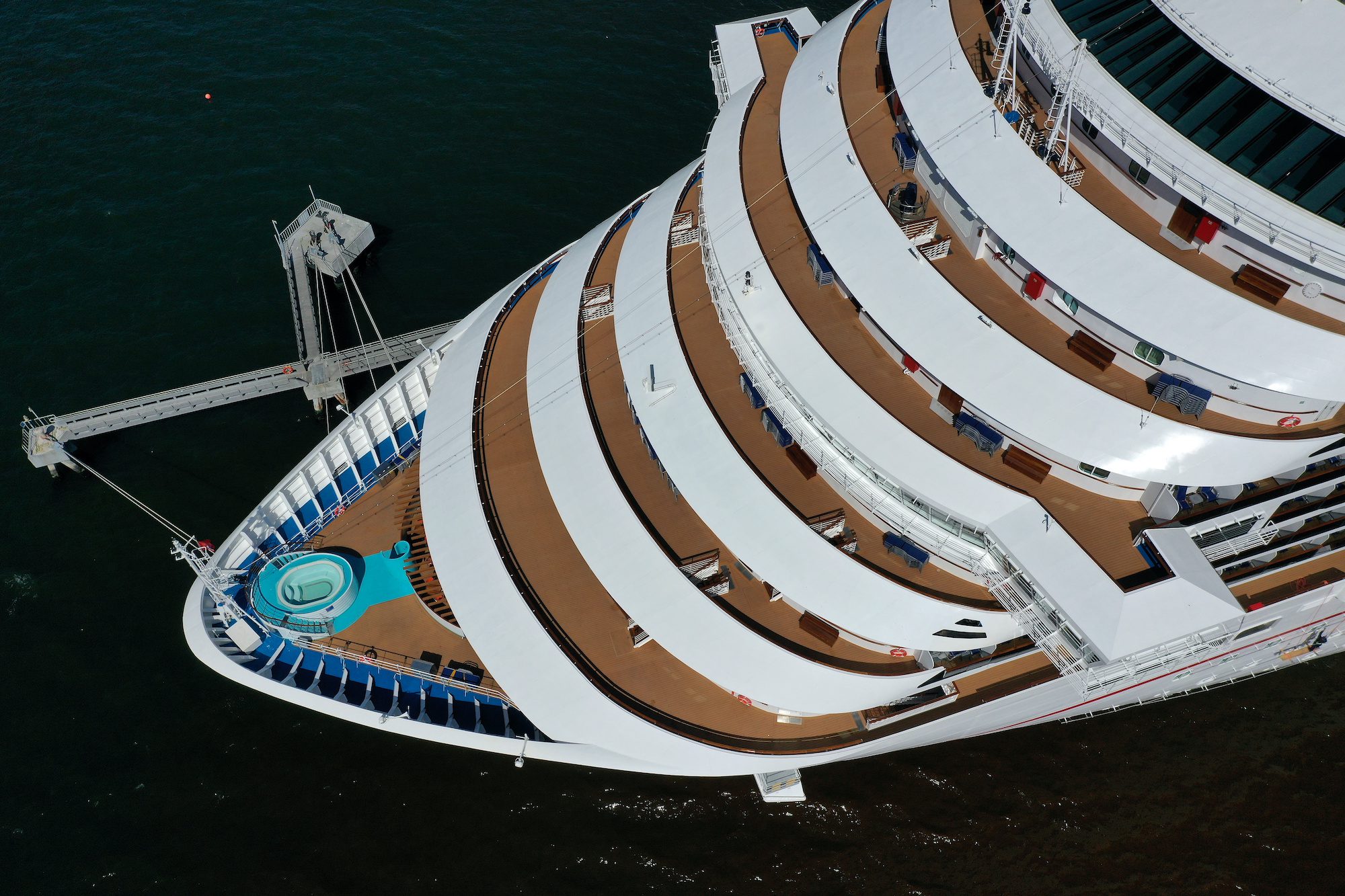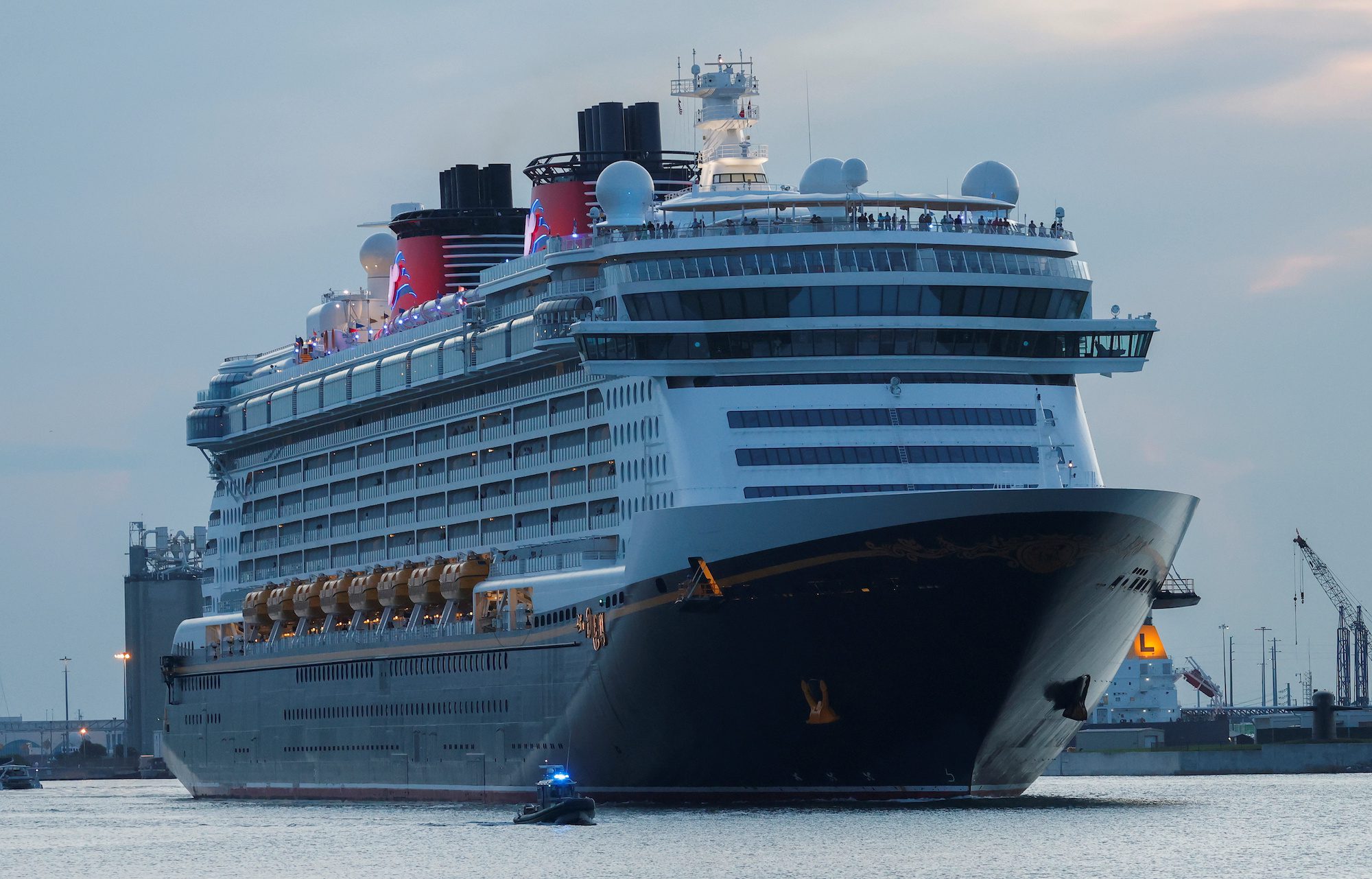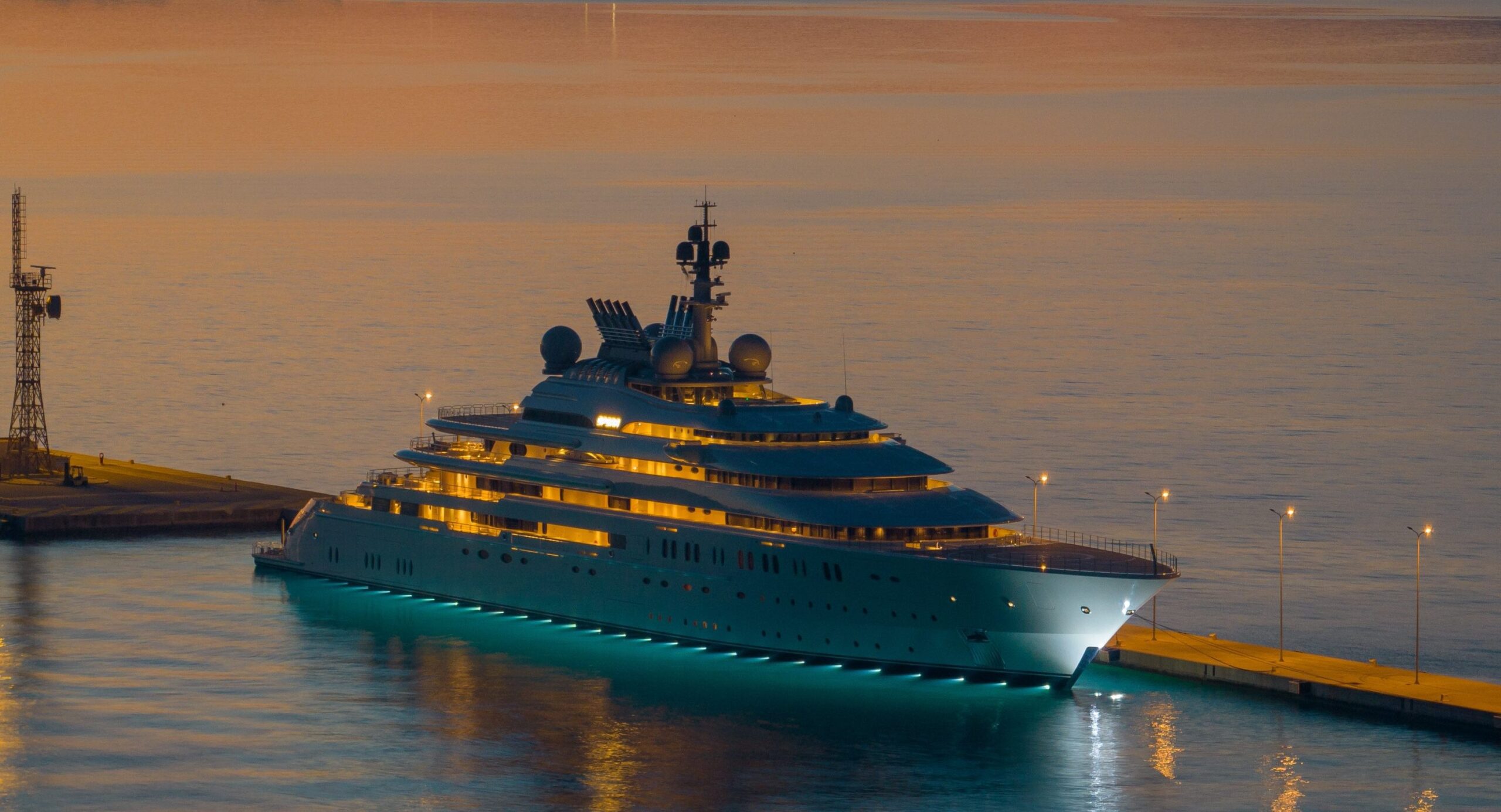By Fran Golden (Bloomberg) —
David Hakimian, 58, an oncologist from the Chicago area, was looking forward to a week of lazy days on Caribbean beaches when he boarded Windstar’s 312-passenger, recently stretched-out Star Breeze—only to find he’d instead be spending a week almost entirely at sea. In Iceland, passengers on the Viking Sky consoled themselves with meals of lobster Thermidor and Dover sole after similarly being turned away from nearly every port they intended to visit. And in Alaska, some sick passengers and crew were stuck quarantining in the fishing town of Petersburg after a 10-person coronavirus outbreak ended a 10-day sail on the 175-passenger American Constellation.
Cruise companies have had more than 15 months to iron out their pandemic-era operations—longer than any other industry. But after seven major lines resumed operations in the U.S. this summer, it’s become immediately clear that this ever-changing virus can scuttle even the best-laid plans.
Their executives, who had generally accepted the reality that some Covid-19 cases would crop up on their ships no matter what, have found themselves up against two unexpected complications: port towns with zero-tolerance policies and the looming threat of the delta variant.
After an alarming rate of positive cases in their first few weeks back in business, they’ve had to make a large number of pivots—some resulting in cancellations. They include pre-sailing PCR testing even for vaccinated passengers, ratcheted-up mask mandates for indoor spaces, and demanding proof of travel insurance. That’s in addition to pandemic-related health and safety protocols—like capacity limitations and regular PCR testing on some lines—that are oftentimes more stringent than the ones that exist on land in the ports they visit, be it in the Caribbean or in Greece.
Despite all that, 13 of 18 ships sailing with paying guests had cases on board in early August, according to charts maintained by the U.S. Centers for Disease Control and Prevention.
“During the pandemic, ‘planning’ has been a case of operational whack-a-mole for the cruise lines,” says Robert Kwortnik, associate professor of services management at the Cornell SC Johnson College of Business. “As soon as one plan is in place, the situation changes—quite unexpectedly—and that plan is scrapped for a new one.”
The New ‘Normal’
The cruising industry’s struggles begin with the fact that there’s no clear industrywide guidance; Covid-cautious CDC recommendations are at odds with Florida statewide policies that have rendered mask mandates and vaccine passports legally contentious. And marketing frequently changing policies isn’t sexy. “Promoting sanitation and health measures isn’t exactly an enticing message for a vacation product,” says Kwortnik.
It’s a confusing landscape for everyone, especially consumers.
Take unvaccinated cruise fan Laura Angelo, 57, from the Bronx, who set sail on Freedom of the Seasin July. After a mix-up about whether she needed to take a PCR test before setting sail, she ended up getting swabbed on board and then promptly booted off the ship in Nassau when the test came back positive. But she didn’t go quietly. Her kicking, screaming, and litigious commentary went viral after she posted her own footage of her “deportation.”
In other cases, there have been unfulfilled promises.
The 80 passengers who boarded the aforementioned Windstar Cruises’ Star Breeze in St. Maarten on June 19 had agreed to a socially distanced and all-vaxxed affair, only to find at the last minute that the company had been unable to secure Johnson & Johnson vaccines for its crew before departure. As a result, each of the scheduled ports of call—the British Virgin Islands, Anguilla, and St. Barts—refused the ship entry, leaving Star Breeze to sail aimlessly for days. (Knowing there would be itinerary issues, the company at least gave them a free ride.)
But most travelers understand the need of going with the flow these days. “Our members are becoming aware that increasingly, destinations in the Caribbean and elsewhere are requiring proof of a negative Covid-19 test to enter, and that the cruise lines are implementing testing policies to satisfy that requirement,” says Chris Gray Faust, managing editor of the website Cruise Critic.
Wary Ports, Everywhere
Every ocean-facing government on Earth has been negotiating safety policies with each cruise line—and nearly all of them different. They can range from pre-cruise testing to what to do in the event of an outbreak. But when those are iterated in real time, passengers are caught in the crosshairs.
Iceland, which was one of the first countries to reopen international borders for land tourism with a testing requirement in June 2020, seemed a safe bet for the adventure-centric Viking Ocean Cruises with its staggering natural beauty and mostly vaccinated population (90 percent of adults in the country were fully immune by the time Viking set sail there in late June). The first two sailings of the Viking Sky from Reykjavik went off without a hitch. But then on the fourth day of the third sailing, an asymptomatic passenger showed up positive and was quickly quarantined.
Viking followed the protocol it had negotiated with the national government, only to have the mayor of Seydisfjordur (population: 700) say its cruisers were not welcome. Guests who were on walking tours of the idyllic valley town or heading into its mountain passes to learn about elves got immediately U-turned back to the ship—only to be turned away from another port the next day. By the time the coast guard ordered the ship back to Reykjavik, guests had notched few Icelandic experiences beyond onboard lectures about the country’s role in World War II and Game of Thrones. (Those passengers got a 50% refund in the form of cruise credits.)
Viking Sky passenger Kristi Chapler Nelson, of Raleigh, N.C., took the itinerary changes in stride. “When you go now, you should expect things not to be perfect,” she says.
Viking wasn’t alone. As the CDC updated travel warnings for Greece on Aug. 3, recommending only essential travel, Greek line Celestyal Cruises canceled its entire program of three- and four-night itineraries from the end of August through March 22, 2022.
And the changes keep coming. The U.S. Virgin Islands amended its rules in early August, promising to turn away ships unless all passengers age 12 and up are vaccinated. Left in the lurch was Royal Caribbean, which hurried to notify nonvaccinated guests booked on an Aug. 8 sailing from Florida to St. Thomas on the 6,780-passenger Allure of the Seas, one of the largest ships in the world.
That day, Michael Bayley, the company’s president and chief executive officer, engaged in a new ritual: updating his customers about policy and itinerary changes on Facebook. He, too, is seemingly taking it in stride, commenting, “More twists and turns!”
© 2021 Bloomberg L.P.

 Join The Club
Join The Club











